15 Reasons to Think Twice Before Getting a Chinchilla
8. Chinchillas can Live a Long Time
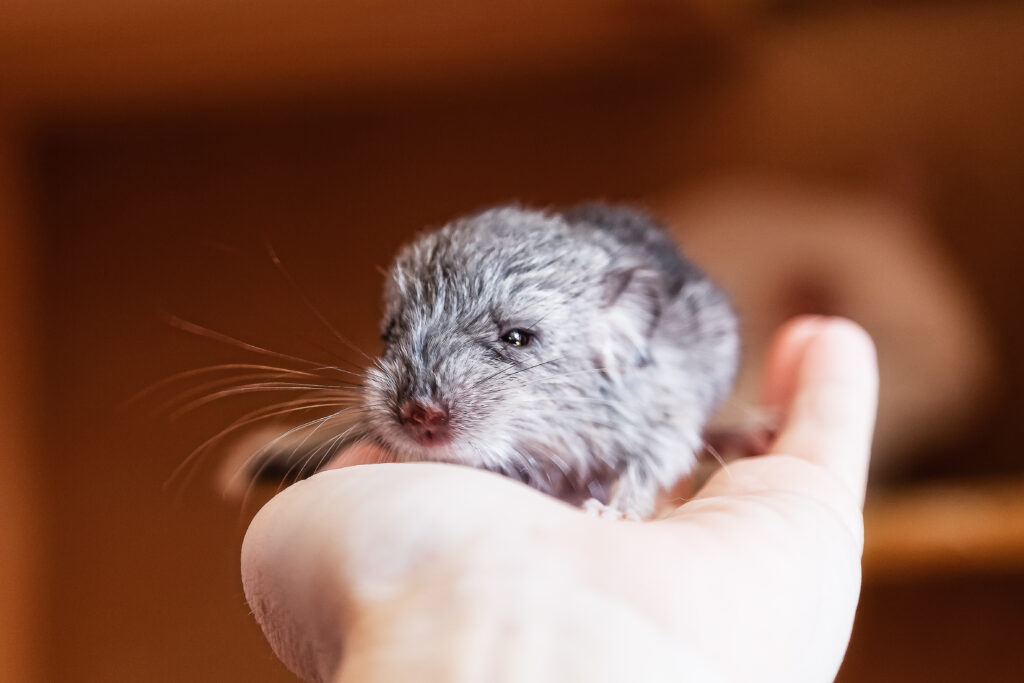
©iStock.com/Icealien
Chinchillas can live up to 20 years in captivity, though 10 years is the average. Either way, that is quite a bit longer than most pets and is undoubtedly more than a hamster or rodent. When you choose to bring a chinchilla into your life, understand the commitment you are signing up to make. This, along with all other pets, is not a part-time commitment.
Adoption is a lifelong promise to always provide the very best for them throughout their lives. That means if you move, they move with you. It means finding a pet-friendly rental no matter what, always allowing them plenty of exercise time, treats, and their own room when possible, and loving them until the end. Too many animals are rehomed or dumped in rescues when problems arise. A pet is forever.
9. They Aren’t Into Being Handled, Petted or Snuggled
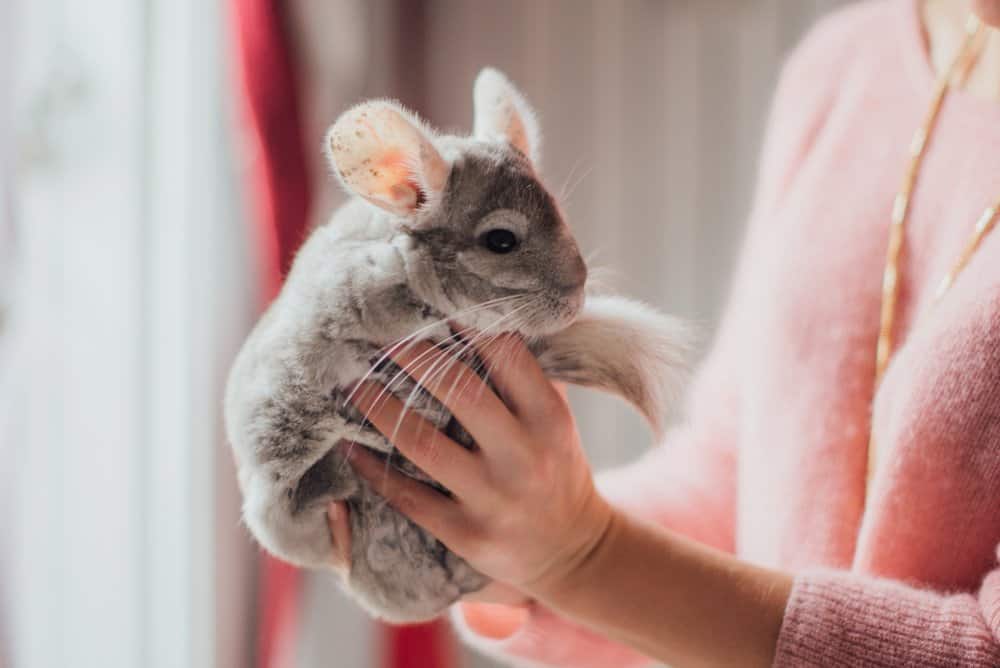
©Anya Poustozerova/Shutterstock.com
These small creatures love running and playing, often bouncing off walls and anything else they find bounce-worthy. They are like Winnie the Pooh’s friend Tigger. They just want to bounce their cares away. You cannot go into a new relationship with the expectation that you will change the other part of the relationship to suit your life, or you will both wind up miserable.
In order for this to be a happily ever after for your chinchilla, come down to their level and learn to have fun in a way that makes them the most comfortable. It isn’t their job to become friendly and cuddly to make you happy. You adopted them to provide them with happiness and a great life. An animal needs to be happy on their terms, not yours.
10. Chinchillas Aren’t Great Pets for Children
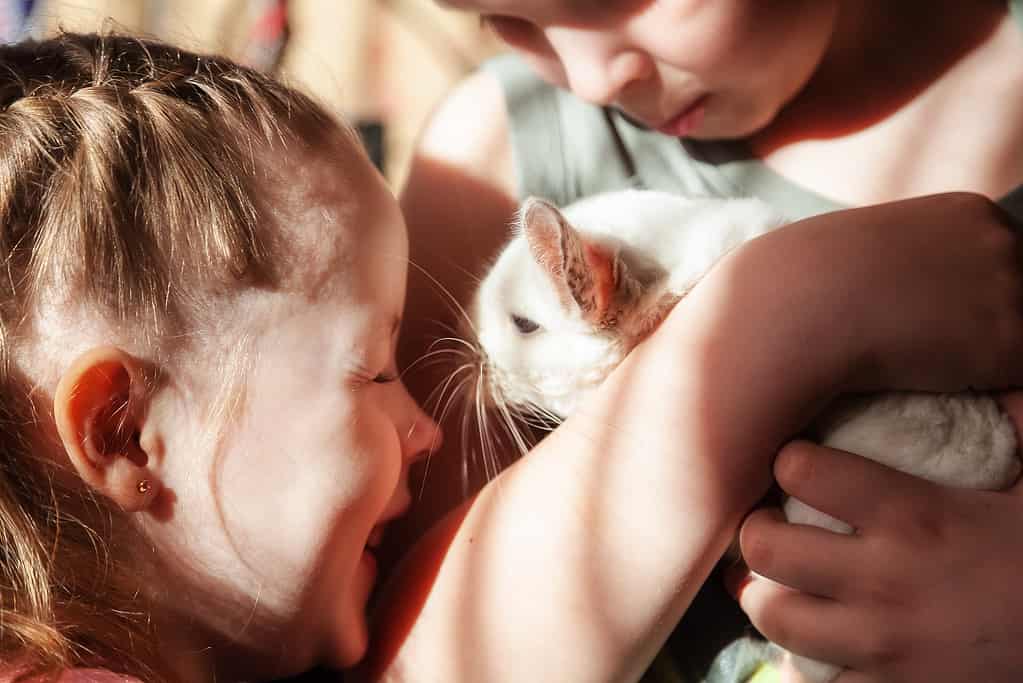
©Icealien/iStock via Getty Images
Children are typically loud, silly, clumsy, and have very short attention spans. Chinchillas are similar in some ways but do not mesh well with what makes a chinchilla the happiest. Chinchillas sleep during the day when children are the most active. While a child sleeps, the chinchilla comes out to play. Chinchillas are very delicate and do not like being held at all. They aren’t big fans of touching unless done on their terms. This takes time and patience from the human wishing to interact with the chinchilla, which children typically do not have.
Children are rough and prone to tantrums, which could seriously injure a chinchilla. Though it is pretty rare, a chinchilla might bite if in distress. If this happens to your child, the chinchilla can be accidentally hurt by the child or face losing its home with you if it is seen as a vicious animal.
11. They Have Dental Issues

©hightowernrw/Shutterstock.com
Chinchilas are born with open-rooted teeth, which means they are continuously growing. Most rodents have this type of teeth, which means they must have a way to file down their teeth, or it can create serious health issues. Chinchilla teeth can grow two or three inches a year!
If a chinchilla’s teeth do not meet adequately for chewing, this can lead to malocclusion. When this happens, the poor fuzzball’s teeth can grow and cut their tongue, gums, cheeks, or lips, creating painful wounds and eating problems. If it is painful for a chinchilla to eat, they may stop doing it altogether. Dental work for any typical pet is costly and can be anywhere from $600 – $2000. The care at an exotic vet will cost even more.
12. Chinchillas are Pack Animals

©slowmotiongli/Shutterstock.com
Chinchillas are pack animals and, in the wild, will live together in separate burrows. There can be as many as one hundred chinchillas all living together. It is best advised to have more than one chinchilla, but they cannot be housed together. They are territorial, will fight, and can injure each other if left alone. They do like to play together, and you will need to get them all out to do so. When you have several chinchillas, the cost of housing and care is multiplied.
13. They are Messy
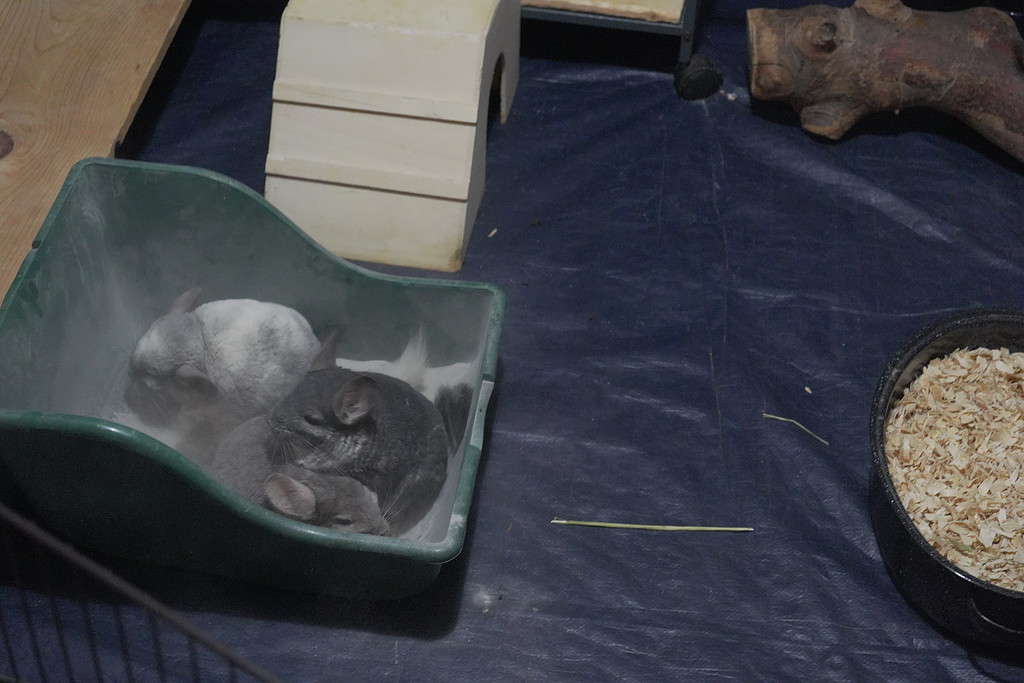
©Bluerasberry / CC BY 4.0 – License
We’ve already covered allergies, but here’s something extra to consider in that category. It is next to impossible to irradicate your home of volcanic sand from a chinchilla’s dust bath. Since they need to have it at least once a week, you will find significant issues with the cleanup. It’s also challenging to clean up. If you try to use a vacuum cleaner, it will clog up the filter and stop the vacuum from working. If you sweep it up, you will send some into the air, and it will land elsewhere. A damp cloth is what you need for cleanup, but even then, you will not be able to clean it all.
They love running and frolicking while taking their dust bath, which will send it flying everywhere when they shake off. During the dust bath, they shake off many times. It wouldn’t hurt to check out some cleanup suggestions on YouTube.
14. Chinchillas Come With Many Potential Health Problems
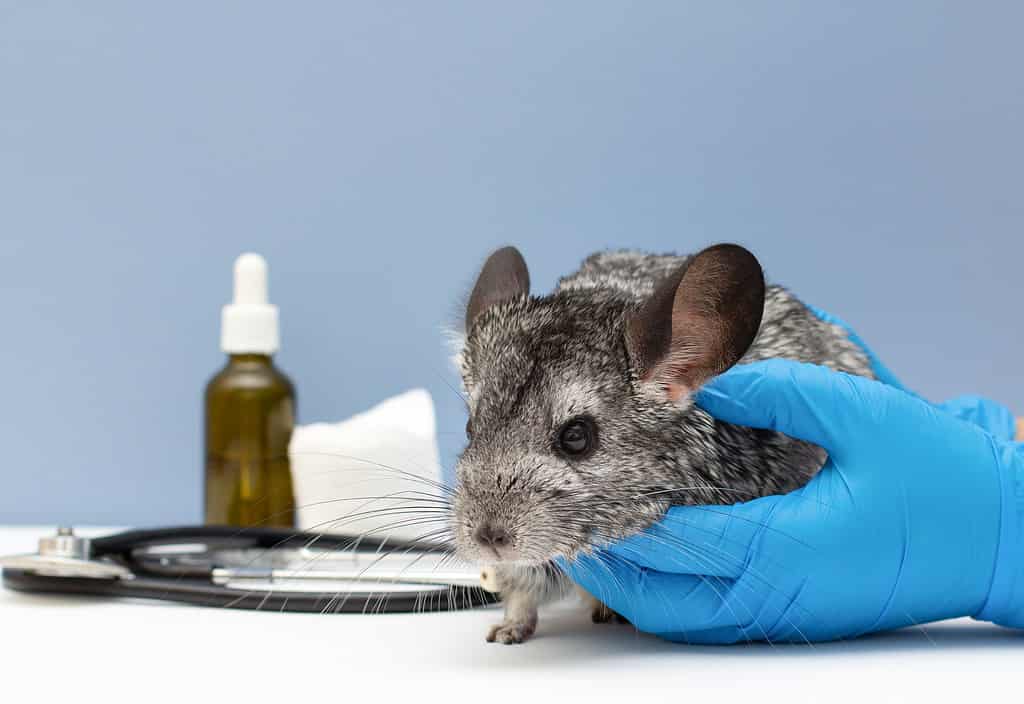
©Irina Vasilevskaia/iStock via Getty Images
Chinchillas can have many health problems, just the same as any other living being. Some of their issues are due to their extremely dense fur. If their fur becomes wet, it can lead to fungal infections on their skin. They can also get ringworm, which is challenging to get rid of. The fur of the males can end up wrapped around the penis sheath, causing pain and other issues. They also sometimes chew on their fur or suffer from hair loss.
We’ve already covered heat stroke and the severity of the issue. Females can also have a problem when their uterus fills with pus and has to be immediately removed. Due to numerous causes, the chinchilla’s gastrointestinal system can stop working, and harmful bacteria will grow, causing the chinchilla to get pain and abdominal upset. When this happens, it can be complicated to restart it. Generally, it involves a hospital stay, lots of IV fluids, and other medications.
Chinchillas and other rodents are prone to developing respiratory sickness. As soon as the signs of the illness become present, the chinchilla is at risk of quickly developing pneumonia. Pneumonia is difficult to treat in smaller animals, and the prognosis isn’t very good.
15. They Need a Lot of Exercise
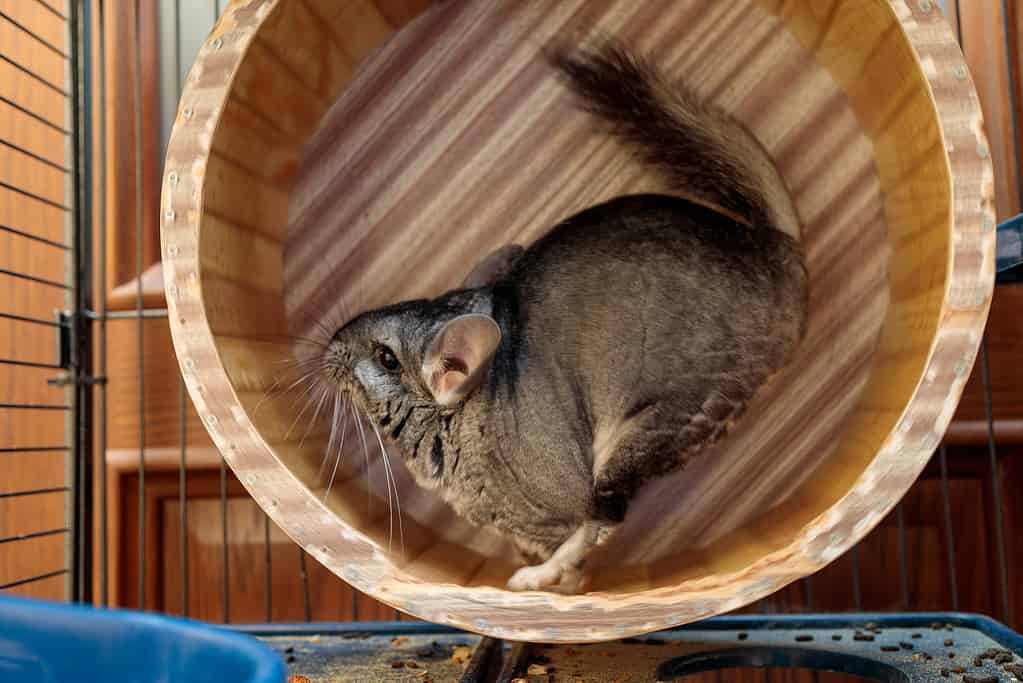
©Andrei Marchenko/iStock via Getty Images
A chinchilla may become depressed if it does not get the opportunity to run and play. They love playing with other chinchillas and will learn that you are safe and come bounding towards you and hop off your knee to continue the fun time. They require mental stimulation. These were once wild animals that could run and hop in abundance in the cool night temperatures with their friends.
If your schedule is tight and time for playing with your chinchilla is challenging, they are not the pet for you. They cannot live in a cage and remain left alone for their lives. They will be miserable. An animal is better left to a home that can provide all of its requirements than move in with you and hope you can make time for it. That isn’t fair for anyone. Make sure to do plenty of research whenever you are thinking about adopting a chinchilla or any animal. You don’t want a situation where a creature goes without choice and must live in miserable circumstances for 20 years. Make sure to choose a pet that you will be able to care for 100%.









